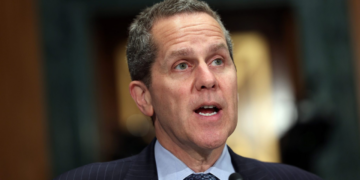- Recession fears continue to mount as the U.S. Federal Reserve braces for recession by late-2022, early-2023, over two-thirds of economists say.
- In May 2022, 4.3 million American workers quit their jobs, despite such fears, suggesting that the Great Resignation is still in full swing.
- While it is unlikely that the Great Resignation will completely stop because of a recession, it will likely slow it down.
The Federal Reserve is gearing up for aggressive measures to counteract the negative global economic fallout of the pandemic and Russia’s war in Ukraine, which have resulted in ongoing inflation and price hikes, threatening to turn into a wholesale economic recession.
The primary measure to prevent these negative record-high economic factors from becoming a recession is increasing interest rates. This is intended to slow down the economy to smoothen its landing as a substitute for a crash.
Nevertheless, two-thirds of economists believe that a recession is next to inevitable. Only time will reveal whether or not that is the case.
The Great Resignation has not slowed down amid inflation and recession fears
Despite recession fears lingering and inflation hurting the everyday lives of millions of Americans, the Great Resignation is still essentially in full swing — which is intuitively shocking, as a looming recession feels like it is the worst time to quit your job.
In 2021, when the Great Resignation began, millions of workers in America were quitting their jobs every month.
One would expect that, after many of the economically destabilizing events of the past several months, the millions of workers would be hesitant to continue quitting their jobs in favor of security.
Nevertheless, in May 2022, 4.3 million American workers quit their jobs, and in all months before May, millions more left their jobs too, including 4.4 million in April.
As it stands, the Great Resignation has not slowed down due to recession fears or inflation. In fact, with the job market currently buzzing, the Great Resignation — for the time being — can more safely resume because a record number of job openings are now available in the U.S.
This does not mean quitting your job before a looming recession is a good idea. On the contrary, doing so could cost one their entire livelihood and well-being if they are not careful. Instead, it may mean that many people are under the impression that it is not that big deal.
The Great Resignation will not stop with a recession because it is a wide-scale attitude shift, not a trend; a recession will slow down the Great Resignation instead.
A recession will hurt the Great Resignation. Still, it will only stall or slow it down, as opposed to ceasing its influence entirely.
A recession or inflation cannot eliminate the Great Resignation in that manner because it is a social idea and movement, not an economic principle directly tied in any way to recessions.
The Great Resignation is a one-of-a-kind phenomenon, and its interaction with a potential upcoming recession will be a first.
There is little to no point of comparison to previous recessions we can make to generate accurate predictions, apart from the facts currently available about how the current phenomenon relates to the potential for a future recession.
Inasmuch as we rely on this current information, one may infer that workers are less fearful of recessions than they have been in the past. They are proving this by continuing the Great Resignation in full swing in the face of what is all but certainly an upcoming significant recession.















